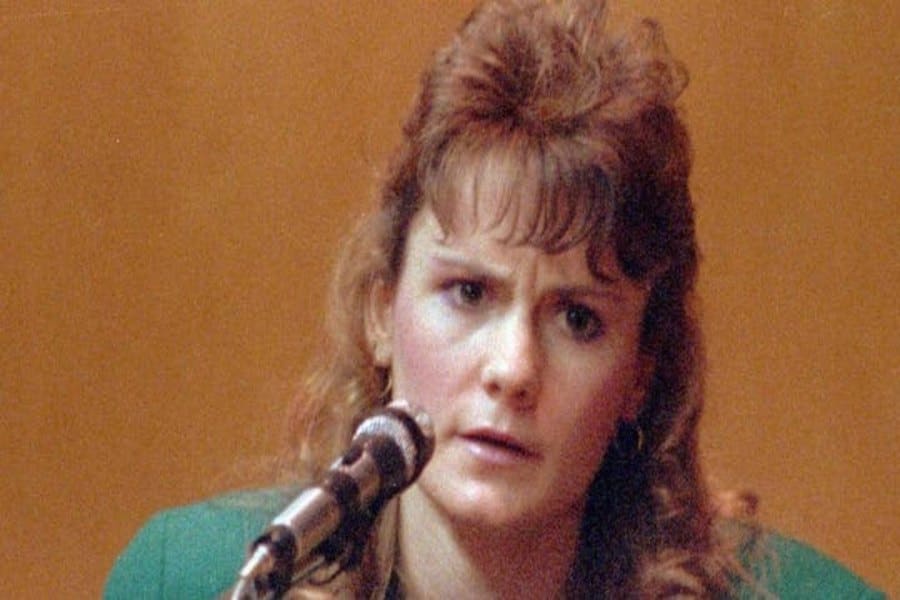Pamela Smart Acknowledges Role in 1990 Murder in New Plea for Clemency
Pamela Smart, a former high school media coordinator serving a life sentence for orchestrating her husband’s murder in 1990, has publicly acknowledged her responsibility for the crime for the first time. This significant admission comes as part of her latest plea for clemency, marking a dramatic shift from her previous stance where she had consistently deflected blame.
In a videotaped message from Bedford Hills Correctional Facility in New York, where she has been incarcerated for nearly 34 years, Smart, now 56, reflected on her role in the crime. “I found myself responsible for something I desperately didn’t want to be responsible for, my husband’s murder,” she admitted. This realization, she said, came during a prison writing class that encouraged her to “dig deeper in my own mind, in my own heart.”
The 1990 Murder and Trial
The murder of Gregory Smart was a shocking crime that captivated national attention. In May 1990, Gregory Smart was murdered by four teenagers, led by Billy Flynn, a 16-year-old student with whom Pamela Smart was having an affair. Flynn shot Gregory Smart in the head while Patrick Randall, then 17, held a knife to his throat. During the trial, Flynn testified that Pamela had threatened to end their relationship if he did not kill her husband, fearing she would lose everything in a divorce.
Pamela Smart, who was 22 at the time and working as a media coordinator at a high school in Hampton, New Hampshire, was found guilty of conspiring with Flynn to commit the murder. Flynn, Randall, and the two other teenagers involved in the crime cooperated with prosecutors and received shorter sentences. They have since been released, while Pamela Smart continues to serve a life sentence without the possibility of parole.
Reflecting on Her Actions
In a letter to New Hampshire Governor Chris Sununu, Smart wrote, “It has taken me decades to come to a place where I can more fully understand and accept responsibility for my inexcusable actions and behaviors.” She admitted to lying to herself and rationalizing her actions by believing that since she wasn’t physically present at the murder, she wasn’t responsible. “I became comfortable in my warped logic because I didn’t want to face the fact that Gregg’s murder was no one’s fault but my own,” she wrote.
In her videotaped statement, she elaborated on this rationalization as a coping mechanism. “The truth of being so responsible was very difficult for me,” she said. “Now that I am older and able to look back on things, I can see so many errors that I made, and I can see how skewed my judgment was and immature I was.”
Plea for Clemency
Smart’s latest plea for clemency is part of an 83-page petition that includes a detailed account of her academic achievements, jobs, and nearly 30 letters of support from fellow inmates, corrections employees, religious leaders, and friends. This is her fourth time requesting that New Hampshire’s governor and the Executive Council commute her sentence. Her most recent attempt in March 2022 was denied within minutes.
“I do not want to die in prison,” she wrote in her letter to Governor Sununu. Her lawyer, Mark Sisti, emphasized Smart’s rehabilitation and remorse, stating in the filing, “She has matured beyond her years and has grown to realize her part in the murder of her husband.” The petition highlights “overwhelming evidence” of Smart’s “rehabilitation, remorse, self-improvement, and true dedication to redemption.”
Governor Sununu’s office has stated that Smart will be given the same opportunity to petition the council as anyone else. However, whether her request will be considered remains uncertain. Councilor Joseph Kenney commented that Smart’s petition is “not on my radar screen as of yet.”
Family and Public Reaction
Val Fryatt, Gregory Smart’s cousin, expressed skepticism about Pamela Smart’s recent admission. He told the Associated Press that she “danced around it without admitting the facts around what made her ‘fully responsible.’” This sentiment reflects the ongoing controversy and divided opinions surrounding the case.
Pamela Smart’s Growth and Change
In her videotaped statement, Smart described how she has changed over the years, acknowledging her past mistakes and expressing how her judgment was skewed and immature at the time of the crime. “I am such a different person than I was. I’m more thoughtful than before. I think things through before I make decisions and less impulsive and just more responsible and mature than I was back then,” she said.
Moving Forward
Pamela Smart’s case remains one of the most high-profile cases involving a sexual relationship between a school employee and a student, and it continues to captivate public attention. Her story was even adapted into the 1995 movie “To Die For,” starring Nicole Kidman and Joaquin Phoenix.
As she awaits the decision on her latest petition, Smart hopes for a chance to present her case to the New Hampshire Executive Council. “If I could come in person or via video conference so that we could share an honest conversation, I would be extremely grateful for that,” she said at the end of her recorded statement.
Background and Early Life
Pamela Smart grew up in Derry, New Hampshire, and attended college at Florida State University. After graduating, she returned to New Hampshire and took a job as a media coordinator at Winnacunnet High School. It was there that she met Billy Flynn, a student in her program. Their affair began in the winter of 1990 and quickly escalated into a plot to murder her husband.
Smart’s trial was one of the first to be broadcast live on television, turning it into a media circus. The salacious details of the case, involving sex, betrayal, and murder, captivated the public’s imagination and made Pamela Smart a household name.
Impact of the Case
The Pamela Smart case had a profound impact on the legal system and media coverage of high-profile trials. It raised questions about the influence of media on public perception and the fairness of televised trials. The case also brought attention to the issue of sexual relationships between teachers and students, leading to stricter laws and policies in schools across the country.
Smart’s story has been the subject of numerous books, documentaries, and films. The 1995 movie “To Die For,” directed by Gus Van Sant and starring Nicole Kidman, was loosely based on the case. The film portrayed a fictionalized version of Smart’s story, with Kidman’s character manipulating a young lover into committing murder.
Legal and Social Implications
Pamela Smart’s repeated attempts to seek clemency reflect broader issues within the criminal justice system, including the potential for rehabilitation and the criteria for granting clemency or parole. Her case raises important questions about how society should balance punishment and the possibility of redemption.
In recent years, there has been a growing movement to reexamine long-term sentences and the conditions under which inmates can seek clemency. Advocates argue that individuals who have demonstrated genuine remorse and rehabilitation should be given a second chance. Critics, however, maintain that the severity of the crime should be the primary consideration in deciding whether to grant clemency.
Pamela Smart’s Efforts at Rehabilitation
During her time in prison, Pamela Smart has worked to better herself and contribute to the prison community. She has earned multiple degrees, including a master’s degree in literature, and has been involved in various educational and rehabilitative programs. Smart has also worked as a peer counselor, helping other inmates navigate the challenges of prison life.
Her supporters argue that these efforts demonstrate her commitment to rehabilitation and personal growth. They believe that her continued imprisonment serves no constructive purpose and that she should be given the opportunity to reintegrate into society.
The Road Ahead
As Pamela Smart continues her fight for clemency, her case serves as a reminder of the complexities and challenges within the criminal justice system. It highlights the need for a nuanced approach to sentencing and clemency decisions, one that takes into account both the severity of the crime and the potential for rehabilitation.
Whether her plea for clemency will be granted remains uncertain, but Pamela Smart’s story continues to spark discussions about justice, redemption, and the possibility of change. Her acknowledgment of responsibility for her husband’s murder marks a significant step in her journey, but the final decision rests with the New Hampshire Executive Council.
In the meantime, Smart remains hopeful that she will have the opportunity to present her case and seek a second chance at life outside of prison. Her story is a testament to the enduring impact of crime on individuals and society, and the ongoing quest for justice and forgiveness.









